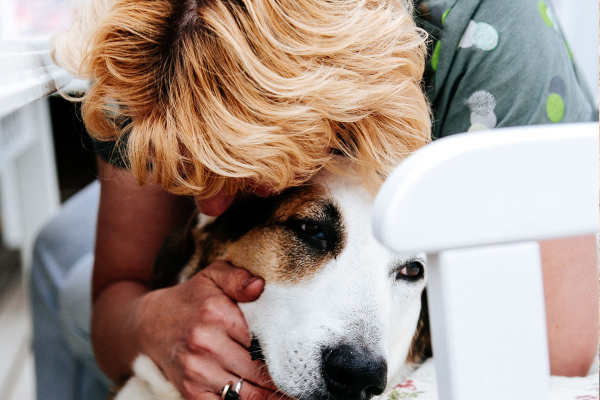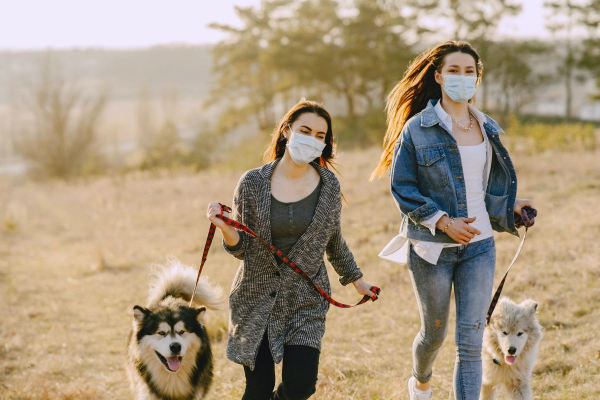 By Bubba the Cat
By Bubba the Cat
Public Relations Officer
February is National Pet Dental Health Month. Why an entire month dedicated to pet oral health?
Well, mostly to get pet owners’ attention, really, because our doctors talk about dental health all year long. Frankly, as a cat, I’m a bit bored hearing them talk about it, but for the sake of your pet, please listen up!
In the past 25 years, the quality of medical care veterinarians provide has grown with the evolution of humans’ bond and relationship with their pets. We pets are now cherished four-legged family members and as such, expect the same quality of care you humans get.
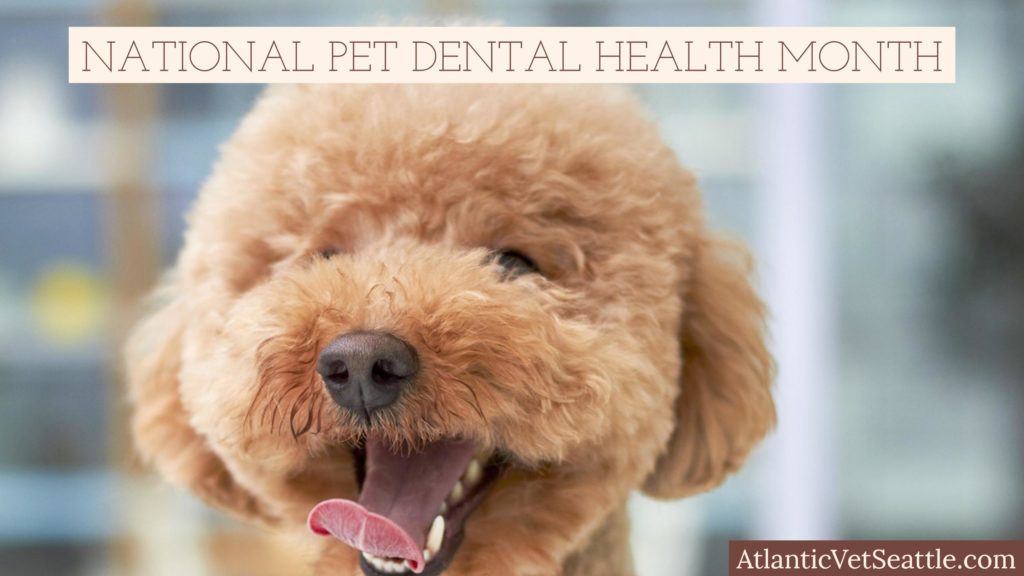
In addition, significant advances have been made in the understanding of the detrimental effects of chronic inflammation on other areas of a body beyond the mouth.
Just a few decades ago, many humans didn’t grasp that we pets felt pain and that bad breath in pets wasn’t “normal.”
You get it now, right?
Bad Breath is Bad!
Pets do feel pain, bad breath is abnormal, and both can often be prevented or alleviated.
However, humans will still ask our doctors, “Why is my pet still eating and acting normally if he’s in pain?”
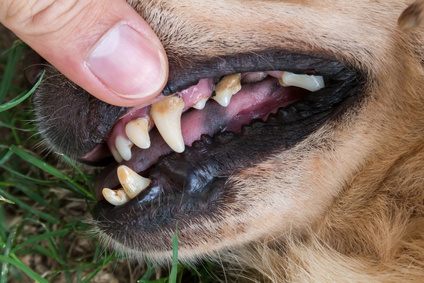 Well, in the wild, if an animal allows pain to prevent it from eating, it will become weak and preyed upon or expelled from the pack. In essence, we pets do our best to hide pain and any sign of weakness.
Well, in the wild, if an animal allows pain to prevent it from eating, it will become weak and preyed upon or expelled from the pack. In essence, we pets do our best to hide pain and any sign of weakness.
Newer research has shown that chronic oral infection and inflammation are a serious threat to our overall health and well-being.
The chronic inflammation of dental disease can initiate oral cancer, and the infection and inflammation release bacteria and other factors into the bloodstream that harm internal organs and make arthritic joints hurt more.
Why Do Pets Get Dental Disease?
Firstly, because we live longer than our wild counterparts.
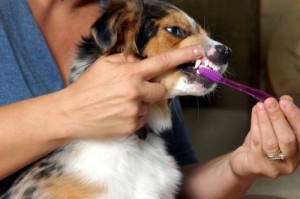 And secondly, we pets don’t fully utilize our teeth like a wild carnivore. Today, we get our food handily delivered in a small kibble, served in a bowl.
And secondly, we pets don’t fully utilize our teeth like a wild carnivore. Today, we get our food handily delivered in a small kibble, served in a bowl.
This lack of using our teeth, along with changes in the shape of dogs’ skulls (as a cat, don’t get me started on that one!) results in plaque build-up.
We often don’t get our teeth brushed every day to remove that plaque like you humans do, and that plaque becomes tartar, then gum disease, then periodontal disease.
Even you humans, who are brushing your teeth twice a day, are supposed to see your dentist twice a year for a professional cleaning!
Here’s a good video that will help you recognize the signs of periodontal disease in your dog or cat:
https://youtu.be/j6gNkXpRZkE
Small Dogs Especially Need Dental Care
And, as smaller and smooshy-faced breeds (like Pugs and Persons) were developed, Mother Nature kept the teeth of small breed dogs proportionately larger than those of larger dogs.
 For example, if you compare the size of the teeth of a Pug to a Golden Retriever, you will notice that the Pug’s teeth are about quarter the size of those of the Golden’s, while its body size is only about one-tenth the size.
For example, if you compare the size of the teeth of a Pug to a Golden Retriever, you will notice that the Pug’s teeth are about quarter the size of those of the Golden’s, while its body size is only about one-tenth the size.
As a result, most of their teeth are rotated and stacked like dominoes behind one another, often causing significant dental problems. This makes the mouths of small breeds much more crowded, leading to severe tartar buildup which quickly leads to loss of bone and gum tissue. Those tiny mouths are also much harder to brush than those of larger dogs.
Veterinary dentistry is a relatively recent medical advancement and not every veterinary hospital may offer the same set of skills and knowledge in caring for your pet’s teeth. Dentistry has only been recently offered as part of the veterinary medical education, and many veterinarians have acquired the skills and knowledge to properly treat pet’s teeth and gums via continuing education based on their level of interest and understanding of the field.
This accounts for the fact that as a pet owner you may have received several different opinions about your pet’s teeth and likely will see a great variance on the cost of pet dental care from hospital to hospital.
Dental Care Fees
Fees for dental care in pets are determined by the level of dental disease present in a pet’s mouth, as well as the hospital’s knowledge base and quality of equipment.
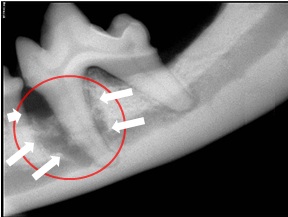 Digital dental X-Ray units to evaluate the large portion of the teeth that lie below the gum line, high-speed dental drills, and laser therapy to promote healing are now considered “standard of care,” yet some veterinary hospitals still do not yet have them and are unable to perform comprehensive dental services.
Digital dental X-Ray units to evaluate the large portion of the teeth that lie below the gum line, high-speed dental drills, and laser therapy to promote healing are now considered “standard of care,” yet some veterinary hospitals still do not yet have them and are unable to perform comprehensive dental services.
If you have specific questions about your pet, please feel free to contact one of our doctors at 206-323-4433.


